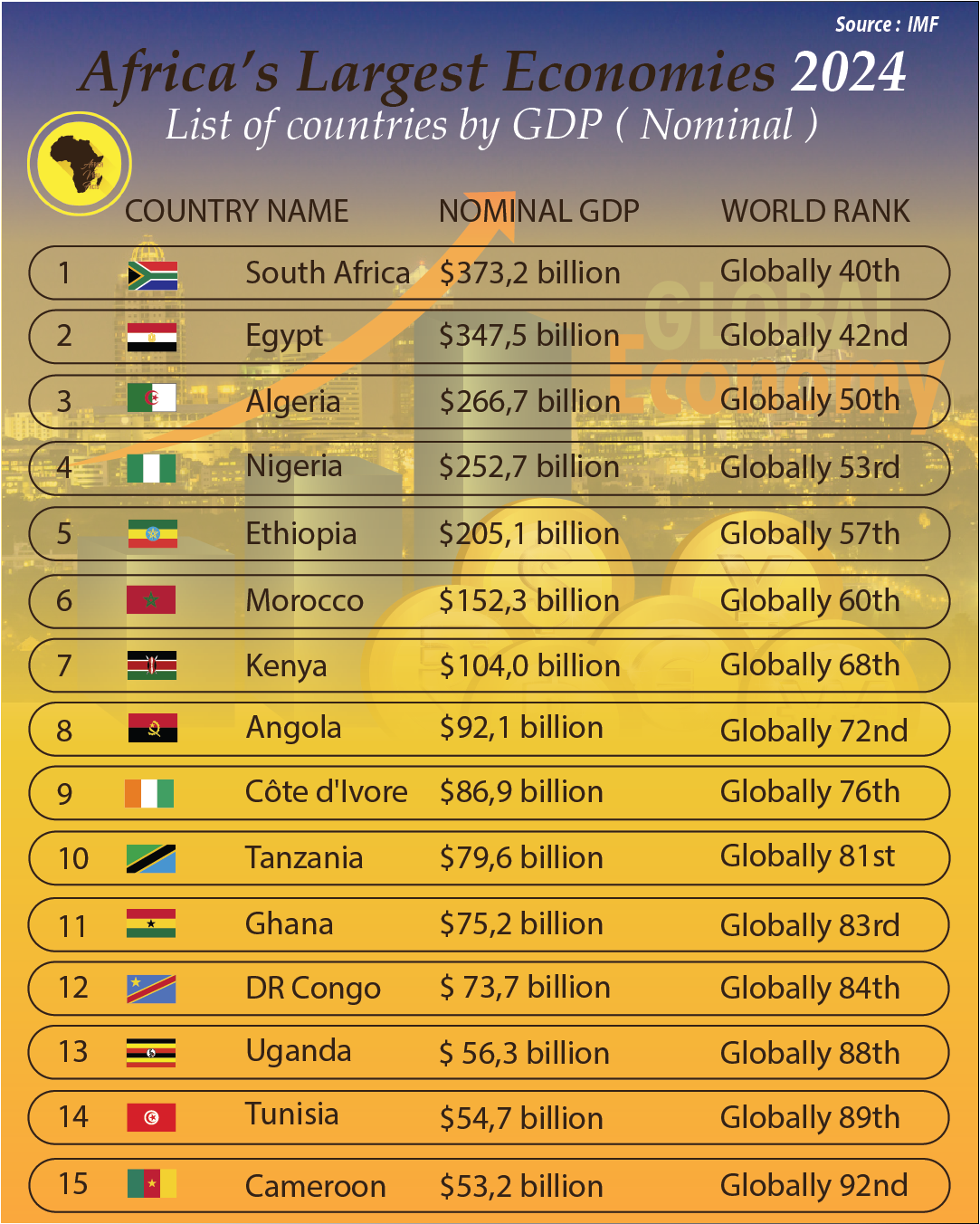15 Largest economies in Africa in 2024

Sandton, Africa's 'Richest Square Mile ( Photo: Sa-venues )
In 2024, Africa's economic landscape showcases a mix of resilience and challenges, with South Africa emerging as the continent's largest economy according to the latest IMF data. The International Monetary Fund (IMF) has released its rankings, highlighting the economies in Africa based on GDP figures for the year. These rankings shed light on the economic trajectories of various nations and forecast future trends within the region.
Top 15 African Economies

The IMF's latest report reveals the following ranking of Africa's largest economies in 2024:
Despite facing persistent macroeconomic challenges, the overall economic outlook for Africa remains stable. The IMF's projections indicate that South Africa, Egypt, Algeria, and Nigeria will maintain their positions as Africa's top four economies until 2030. Notably, South Africa is poised to surpass Nigeria and Egypt to become the continent's largest economy, benefiting from energy supply improvements and logistical enhancements.
Nigeria, once Africa's largest economy, has slipped to the fourth position in 2024. The nation is grappling with multiple economic hurdles, including a soaring inflation rate of 33%, a weakening currency, and the aftermath of government economic reforms. Last year, the Nigerian government implemented significant policy changes, such as ending petrol subsidies and allowing market forces to dictate the currency exchange rate, leading to a surge in living costs.
Furthermore, Nigeria faces acute dollar shortages crucial for imports, exacerbating its dependence on foreign goods. The Nigerian Naira remains substantially devalued against the dollar, impacting both consumer purchasing power and import-dependent sectors.
To combat rising inflation, the Central Bank of Nigeria recently raised interest rates to 24.75% and eliminated electricity tariff subsidies. These measures aim to stabilize prices and restore economic confidence amidst challenging circumstances.
Meanwhile, Egypt, which held the top economic position in 2023, is projected to slide to the second spot behind South Africa due to successive currency devaluations. Despite this setback, the IMF forecasts that Egypt could reclaim the top position by 2027, underscoring the country's economic resilience and recovery potential.
Looking ahead, the IMF's World Economic Outlook emphasizes the need for sustained reforms and investments to bolster Africa's economic resilience. Countries like Kenya are expected to climb in the rankings, surpassing economies such as Angola in the coming years. Ethiopia's economy, holding steady in the fifth position, is projected to maintain its standing until 2030.
Africa's economic trajectory underscores the importance of strategic policies and investments to mitigate challenges and unlock growth opportunities across the continent. As nations navigate complex economic landscapes, sustained reforms and international partnerships will play a pivotal role in shaping Africa's economic future.






